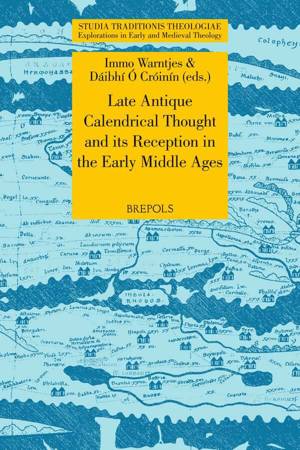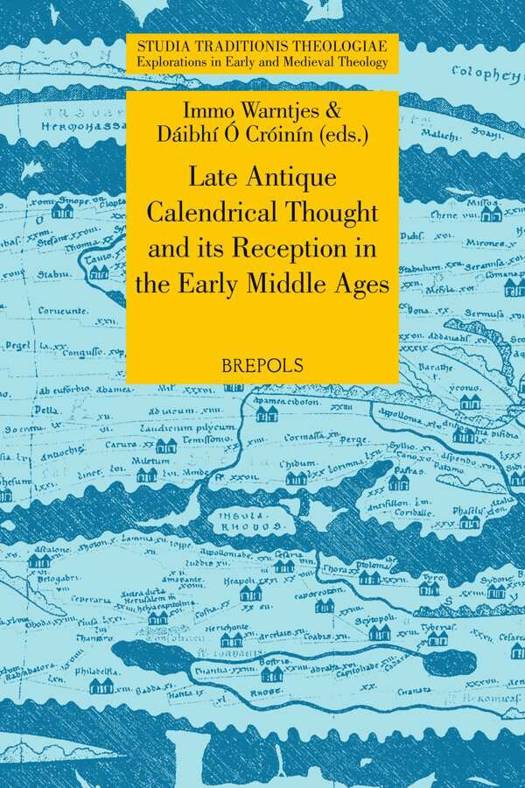
- Retrait en 2 heures
- Assortiment impressionnant
- Paiement sécurisé
- Toujours un magasin près de chez vous
- Retrait gratuit dans votre magasin Club
- 7.000.0000 titres dans notre catalogue
- Payer en toute sécurité
- Toujours un magasin près de chez vous
Late Antique Calendrical Thought and Its Reception in the Early Middle Ages
Proceedings from the Third International Conference on the Science of Computus in Ireland and Europe, Galway, 16-18 July, 2010
Immo Warntjes
Livre broché | Anglais
90,10 €
+ 180 points
Description
Late antique and early medieval science is commonly defined by the quadrivium, the four subjects of the seven liberal arts relating to natural science: astronomy, geometry, arithmetic, and music. The seven-fold division of learning was designed in Late Antiquity by authors such as Martianus Capella, and these authors were studied intensively from the Carolingian age onwards. Because these subjects still have currency today, this leads to the anachronistic view that the artes dominated intellectual thought in Late Antiquity and the early Middle Ages. Quite the contrary, the artes were an idealized curriculum with limited application in practice. Certainly, the artes do not help in our understanding of the intellectual endeavour between the early fifth and the late eighth centuries. This period was dominated by computus, a calendrical science with the calculation of Easter at its core. Only computus provides a traceable continuation of scientific thought from Late Antiquity to the early Middle Ages. The key questions were the mathematical modeling of the course of the sun through the zodiac (the Julian calendar) and of the moon phases (in various lunar calendars). This volume highlights key episodes in the transmission of calendrical ideas in this crucial period, and therewith helps explaining the transformation of intellectual culture into its new medieval Christian setting.
Spécifications
Parties prenantes
- Auteur(s) :
- Editeur:
Contenu
- Nombre de pages :
- 391
- Langue:
- Anglais
Caractéristiques
- EAN:
- 9782503577098
- Date de parution :
- 04-04-18
- Format:
- Livre broché
- Format numérique:
- Trade paperback (VS)
- Dimensions :
- 155 mm x 231 mm
- Poids :
- 739 g

Seulement chez Librairie Club
+ 180 points sur votre carte client de Librairie Club
Les avis
Nous publions uniquement les avis qui respectent les conditions requises. Consultez nos conditions pour les avis.





